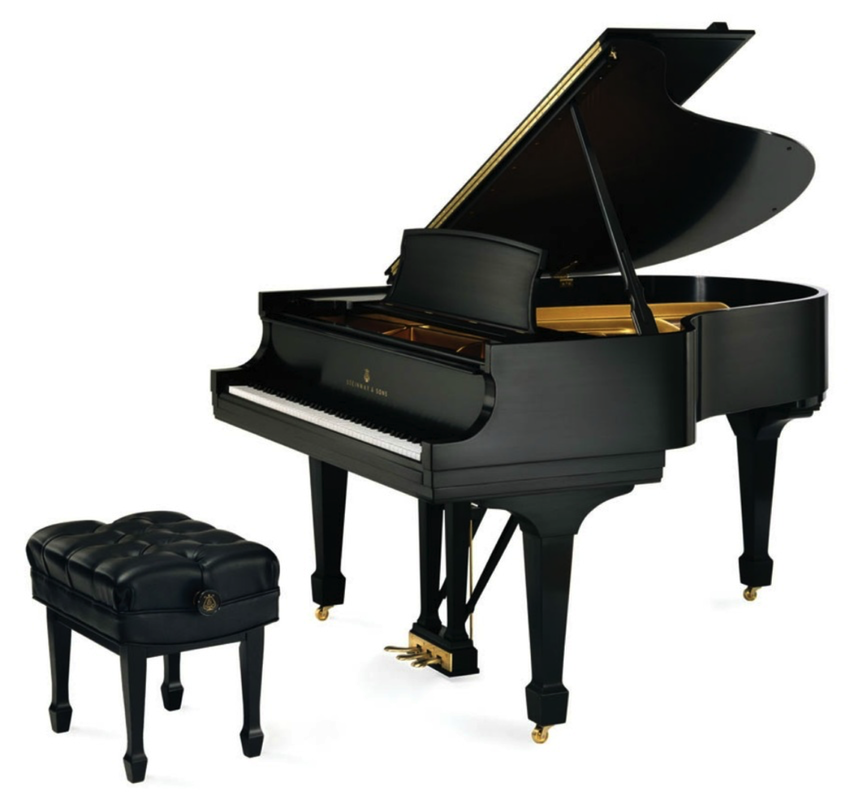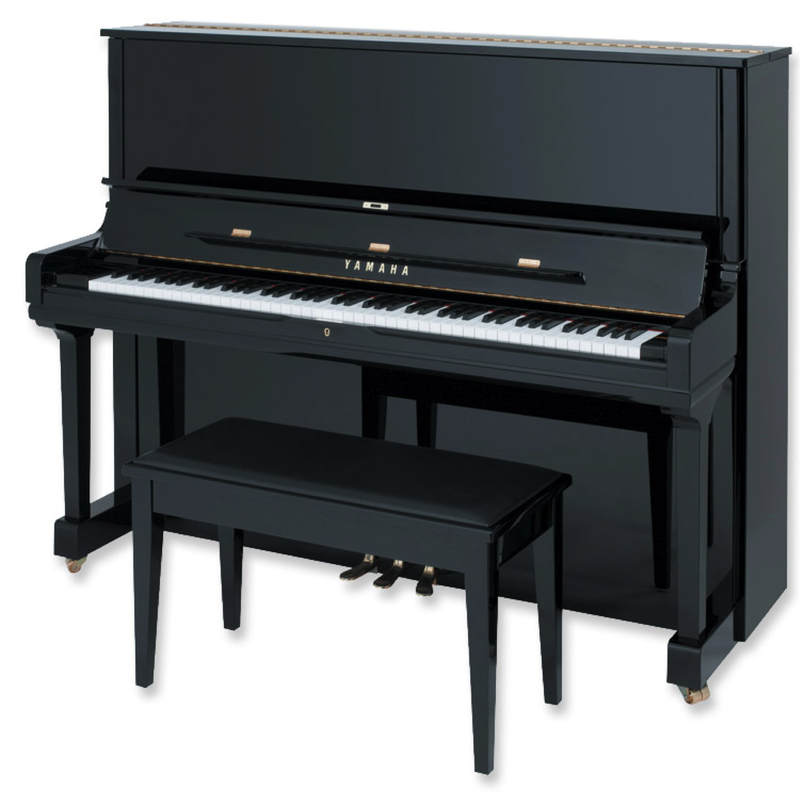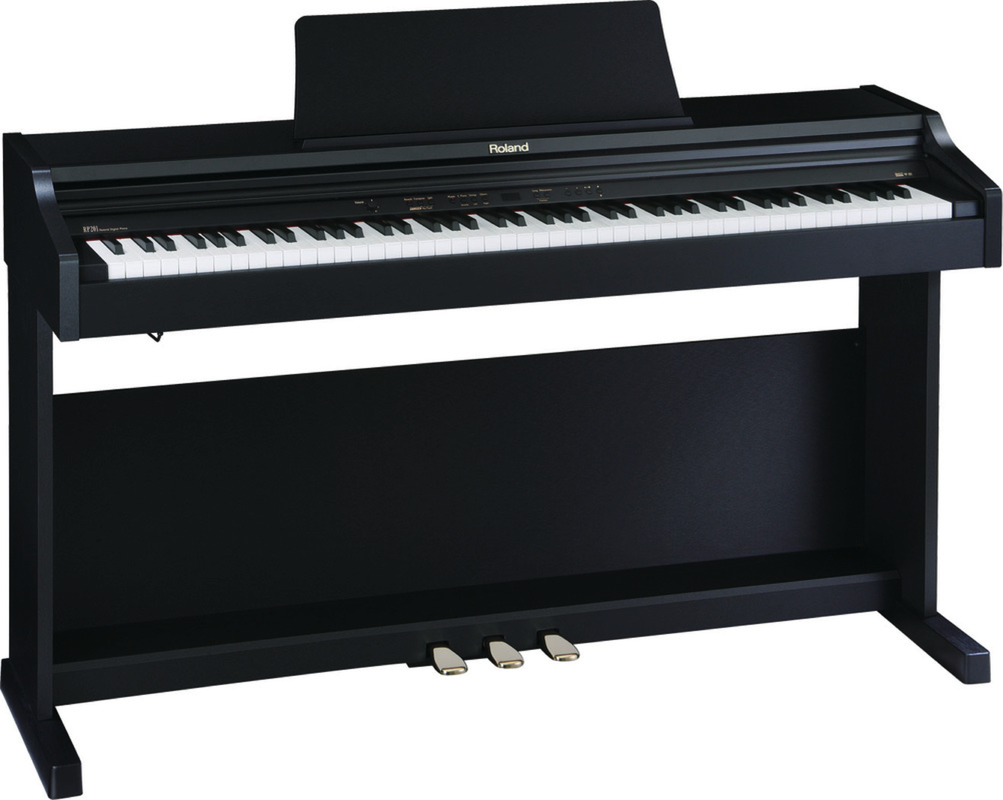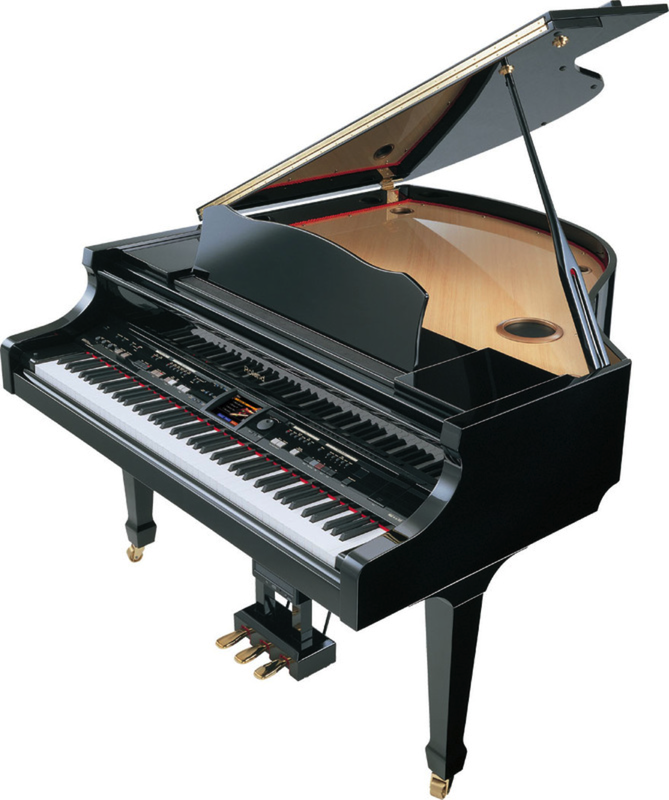|
Every piano student should feel a sense of growth and satisfaction after each practice session. The instrument that you choose may help to get you there.  Acoustic Grand Piano Acoustic Grand Piano 1. Acoustic Piano: Preferred if in great condition and regularly tuned. The weight and movement of our fingers, wrists, arms, legs, feet, shoulders, and back are all used to control and mold the sound that comes from the strings in the piano. These sounds and effects are much more noticeable and easier to develop on a good acoustic piano than on a digital piano or electric keyboard. In order for the piano practice experience to be enjoyable, an acoustic piano needs to be maintained and tuned at least twice a year. Have a professional piano technician check out any used piano you may consider buying; sometimes the cost of repairs may outweigh the value of the piano. Take time to select the piano that is best for you and your loved ones. Digital Piano2. Digital Piano: Good option depending on the quality. A digital piano may be just as good as an acoustic depending on the quality and your lifestyle. Digital pianos are low maintenance, lighter and easier to transport, and have features that may be useful - such as record and playback effects and the option to practice with headphones. The weight and resistance of the keys may also be adjusted to your preference. Look for a touch sensitive 88 key piano with pedals. An excellent digital piano is far better than a low quality acoustic piano. 3. Basic Electric Keyboard: Limited/Special Use
Most professional classical piano teachers view these keyboards as more of a toy than an instrument because it greatly limits the technique and musicality one can achieve. Misuse may even result in the development of bad habits. You can have fun and learn music theory, pieces, chords and runs on those keyboards but you would have certain things missing from your training. An aspiring classical pianist would be encouraged to get a digital or acoustic instrument in order to explore the full range of sound, tone and possibilities as a pianist. A singer who simply wants to learn some basic chords or patterns to accompany their voice may have an easier time. It all depends on the limits you are willing to set for yourself as well as your goals as a musician.
0 Comments
Standard piano lesson books are systematically organized music books composed of pieces that are used to reinforce or help teach a particular musical concept or skill. Having a standard piano method book helps to promote a solid foundation and regular growth at the piano as each page or lesson in the book points to the next level of playing. Once a student becomes advanced, their options of lesson books decrease – most standard lesson books do not offer many advanced levels. Students are assumed to have “graduated out of lessons books” and on to more advanced works through independent books once they have achieved a certain skill level.
Music theory, technique, artistry and other books serve as an extension of the lesson book by providing supporting information in more detail as well as activities to go along with the information in each lesson. Supplementary piano books are books that are used in conjunction with the lesson book to help feed a student's need for variety by exploring fun and exciting repertoire. Supplementary books enable piano students to celebrate their progress by playing more music at their current level. They may also challenge ambitious students with larger more difficult works than offered in a standard lesson book. These books are great for exploring different styles, composers and music for fun at home, during piano lesson or at recitals. 1. Some adult students are complete beginners with no prior musical experience while others are intermediate or advanced and have played for many years when they were younger.
2. Some were self taught musicians who did not progress beyond a certain point while others had teachers for a number of years. 3. Some adult students know exactly what they would like to play and bring music by their favorite artists, bands, or composers while others leave most of the selection up to the teacher. 4. Many adult students are retired with children who have grown up and moved away. Others work locally and are full time parents still raising children at home. Some are somewhere in the middle. 5. Most adult students take lessons once a week while others learn every other week. Once a week results in faster progress, more support and guidance and less time to wait before correcting any mistakes. Every other week provides flexibility for those who travel for business and also provides additional practice time for the more independent or advanced adult students who take long lessons and have larger pieces. 6. Each adult student's curriculum is highly personalized to fit the frequency of their lessons, their learning style and practice capabilities. The practice expectation for adult students is different from that of a child. Some adult students use their lesson time as their main practice session and learn pieces with very little practice outside of their lesson. Some adult students have regular but flexible practice habits and other adult students have a very structured routine and follow a rigorous daily practice schedule. 7. Any type of adult student can benefit from piano lessons. There is no one way or single profile of an adult student. You must be realistic about your practice capabilities so as not to be apologetic and to allow the creation of a curriculum that supports your schedule. This may enable most or all of your learning and practice to be done during the lesson. A student who progresses with little or no practice and meets set expectations can easily do so with a personalized lesson plan that is structured to match their lifestyle and time limitations - then will you feel a sense of calm and accomplishment as you learn to play the piano. |
AuthorJodi Ann Russell, Ed.D., M.M., B.M., N.C.T.M. brings a warm emphasis on mindfulness, relaxation, creativity and technique in personalized piano lessons and master classes Archives
July 2024
Categories |






 RSS Feed
RSS Feed